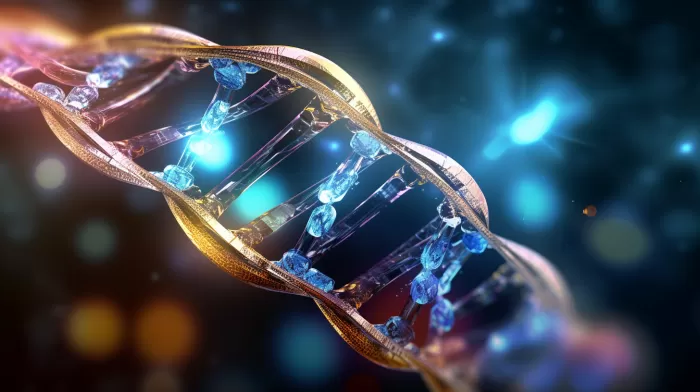The possibility of genetically modifying babies is on the horizon as the Food and Drug Administration (FDA) contemplates whether researchers should be permitted to experiment with creating genetically modified humans. This concept has led to the debate of its safety and ethical implications, with many questioning whether we are ready for such groundbreaking and irreversible changes in human genetics.
Exploring Mitochondrial Manipulation Technologies
Mitochondrial manipulation technologies involve the removal of nuclear material from the egg or embryo of a woman with inheritable mitochondrial disease, followed by its insertion into the healthy egg or embryo of a donor whose nuclear material has been discarded. The New York Times reports that this technology aims to prevent the inheritance of dysfunctional mitochondria from the mother. If successful, the resulting baby would contain genes from three individuals—the nuclear DNA from both the mother and father, as well as the mitochondrial DNA from a healthy donor.
The Unknown Risks
It is currently impossible to predict the effects of genetic manipulation on the babies born with modified DNA and the future generations that will inherit their modified genes. Marcy Darnovsky, executive director of the Center for Genetics and Society, is an advocate for cautionary examination of this technology, stating that the debate is far from over.
As our understanding of genetics has evolved, our ability to manipulate genes has advanced, leading to revolutionary discoveries like the gene-editing tool CRISPR. This continuous development of genetic modification has enabled the successful correction of gene mutations responsible for specific diseases in animals and human embryos. However, the unknown consequences and ethical challenges accompanying these advancements have been a cause for concern.
Benefits Beyond Disease Prevention
Although the primary goal of mitochondrial manipulation technologies is disease prevention, proponents argue that the potential benefits extend beyond this objective. For instance, genetically modified babies could possess enhanced abilities, such as superior intelligence, increased disease resistance, improved physical strength, or even altered physical appearance—all determined by their manipulated genes.
While such modifications may seem beneficial, these possibilities have led critics to question whether parents should have the authority to decide on their child’s genetic make-up. Concerns surrounding the creation of “designer babies” include the potential for increased social inequality and the unpredictable and unknown consequences on the baby and future generations.
Furthermore, allowing genetic manipulation of embryos could lead to a slippery slope where genetic modifications are no longer being used to prevent diseases but to enhance specific traits deemed desirable. This scenario raises the question of where regulation should draw the line between acceptable and unethical use of genetic manipulation.
Balancing Advancements and Ethical Concerns
Scientists are committed to exploring ways to enhance human health and well-being through genetic research. For example, the National Institutes of Health’s National Human Genome Research Institute has focused on investigating the ethical, legal, and social implications of genetic research for nearly three decades. However, despite these ongoing efforts to thoroughly study the benefits, risks, and ethical consequences of genetic manipulation, there are still many unanswered questions that make it challenging to conclude whether we are ready for genetically modified babies.
As we move forward, scientist collaboration with ethicists, policymakers, and the public would be essential if we are to safely and ethically progress in genetic technology. A transparent, informed, and open dialogue can help ensure that societal values and diverse perspectives are considered when determining the future of genetic research and its potential applications.
Conclusion
While scientists still have much to learn about the long-term effects and potential consequences of genetically modifying humans, mitochondrial manipulation technologies have the potential to revolutionize our lives through disease prevention and enhanced abilities. However, the ethical challenges accompanying these advancements must be carefully and cautiously addressed. Ultimately, society must determine whether we are prepared to accept the unknown risks and complex ethical issues raised by genetically modified babies.



